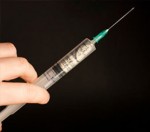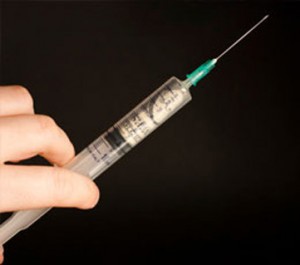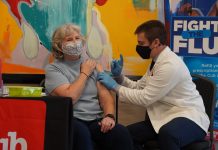
 Another fitful night. A mom is awake, listening to her baby cough and trying to comfort him. She will be too worried to sleep tonight. For the past four days, her baby has had trouble eating, drinking, and sleeping because of this awful cough. Tomorrow, she will miss another day of work to care for him. She wonders when it will end. She is exhausted
Another fitful night. A mom is awake, listening to her baby cough and trying to comfort him. She will be too worried to sleep tonight. For the past four days, her baby has had trouble eating, drinking, and sleeping because of this awful cough. Tomorrow, she will miss another day of work to care for him. She wonders when it will end. She is exhausted
and her baby is miserable. Unfortunately, the end will not come soon because this cough is whooping cough, also called the “100-day cough” because of its long duration.
Whooping cough – or pertussis – is a serious and very contagious respiratory disease that can cause long, violent coughing fits and the characteristic “whooping” sound that follows when a person gasps for air. It takes a toll on anyone, but for infants it can be deadly. This year alone, more than 3,500 people in Minnesota have been diagnosed with whooping cough.
Fortunately, there are vaccines that can prevent whooping cough. The Minnesota Department of Health (MDH) recommends that infants and children get the childhood vaccine that includes protection against whooping cough, diphtheria, and tetanus (DTaP) at 2 months, 4 months, 6 months, and 15 through 18 months of age. A booster of DTaP is
given at 4 through 6 years of age.
Because protection from DTaP fades over time, MDH recommends another dose of whooping cough vaccine, known as Tdap, for adolescents (ideally at 10-12 years) and adults. Adults who did not receive Tdap as pre-teens should get a dose now. By protecting themselves, older children and adults can form a circle of protection around the babies in their lives that may be too young to be fully protected by DTaP.
Whooping cough vaccines are very effective, but like all vaccines, not 100% effective. You can still get the disease even if you’ve been vaccinated. Also, whooping cough often goes undiagnosed since it usually starts with cold-like symptoms, but can become a series of coughing fits that continues for weeks or months. Unfortunately, someone may not even know they have whooping cough and unknowingly spread the disease to others, including babies.
If a doctor suspects whooping cough, a test can be done to confirm the diagnosis. If the diagnosis is made early, antibiotics can be given to decrease the severity of symptoms and prevent transmission. If you think your or your child’s persistent cough is whooping cough, it’s important to tell the doctor if you will be around an infant. If you think your infant has whooping cough, see a doctor immediately. Sometimes an infant won’t have the hallmark cough or whooping sound, so be alert to any difficulty breathing.
To learn more, visit MDH’s pertussis website at www.health.state.mn.us/pertussis. You can also get information from the U.S. Centers for Disease Control and Prevention (CDC) at www.cdc.gov/pertussis or 1-800-CDC-INFO.










